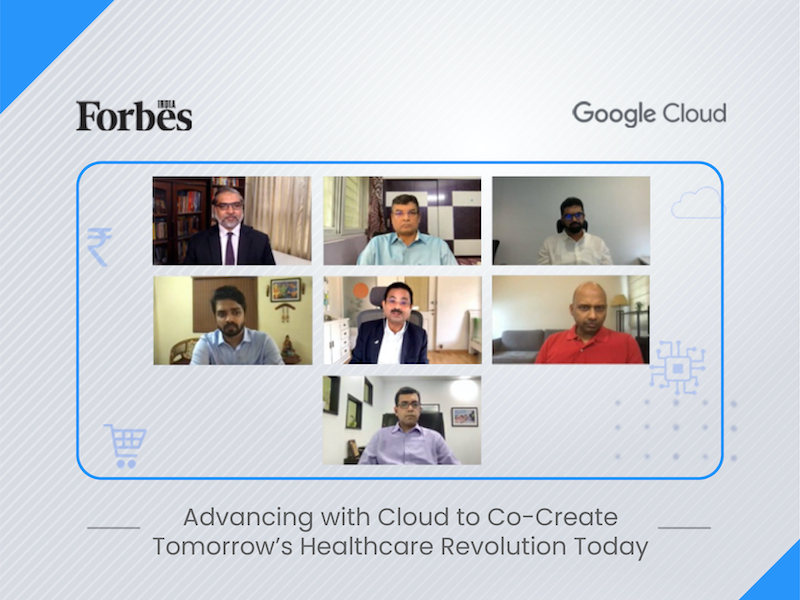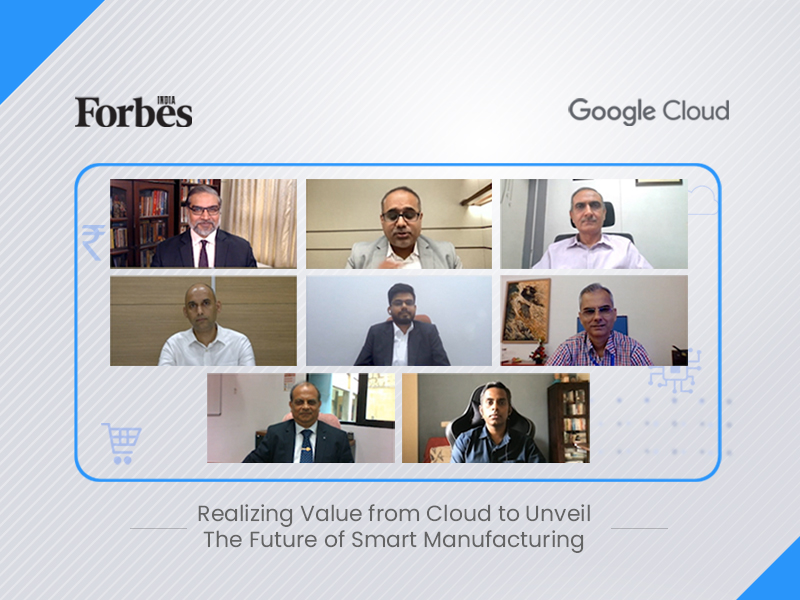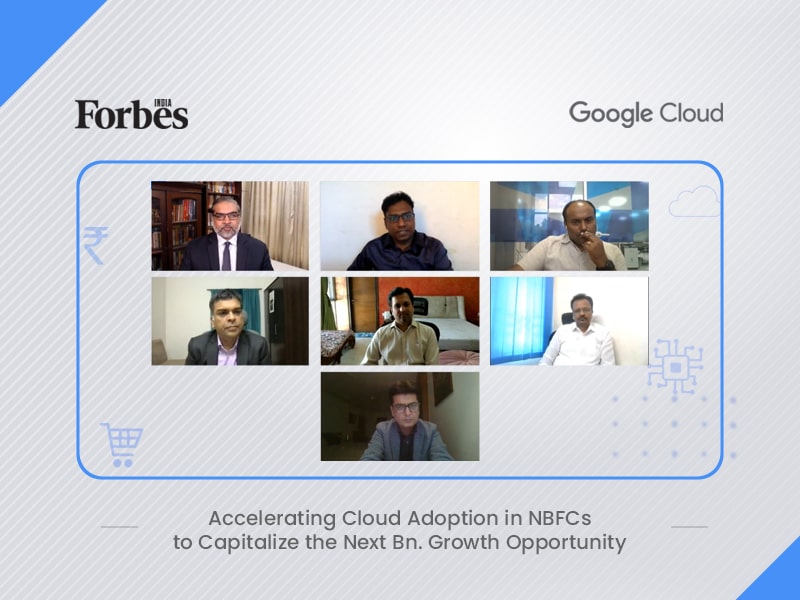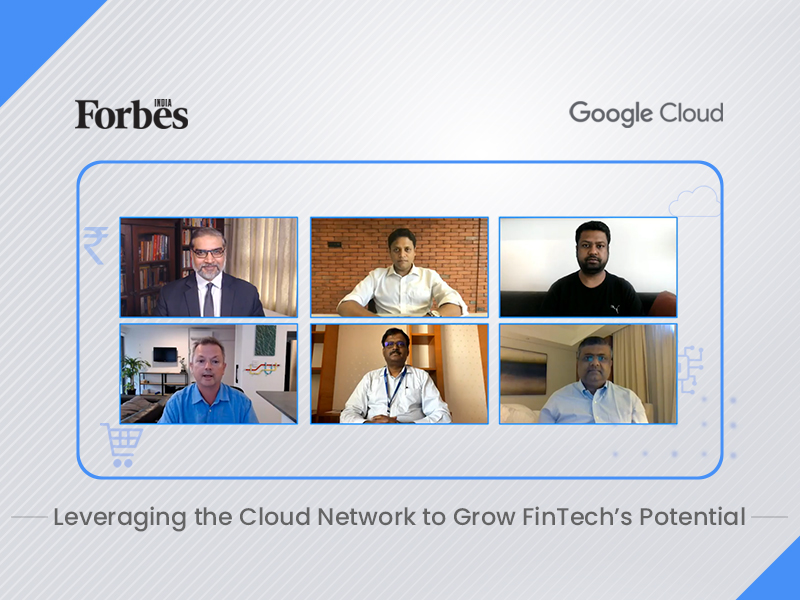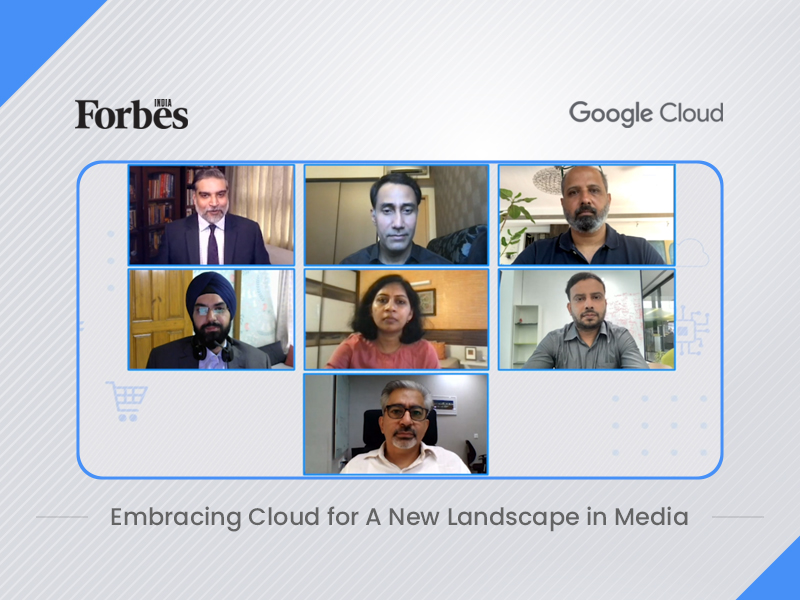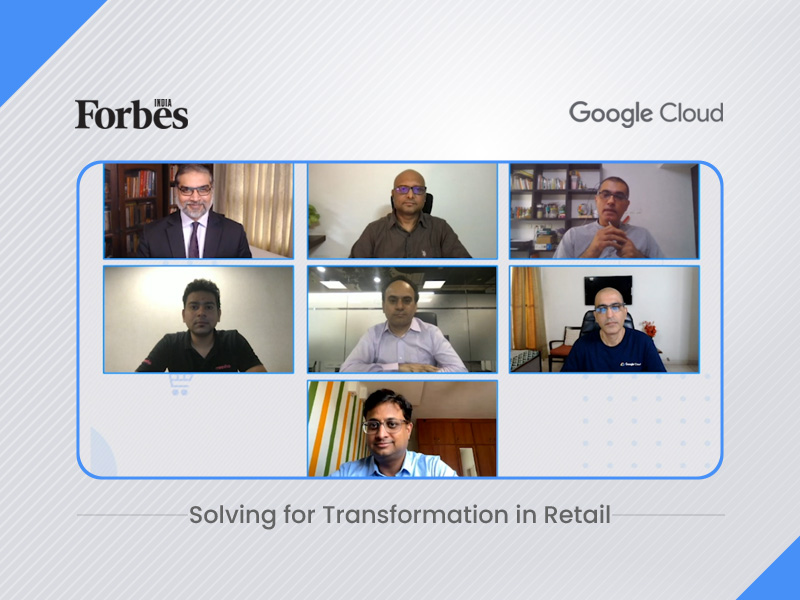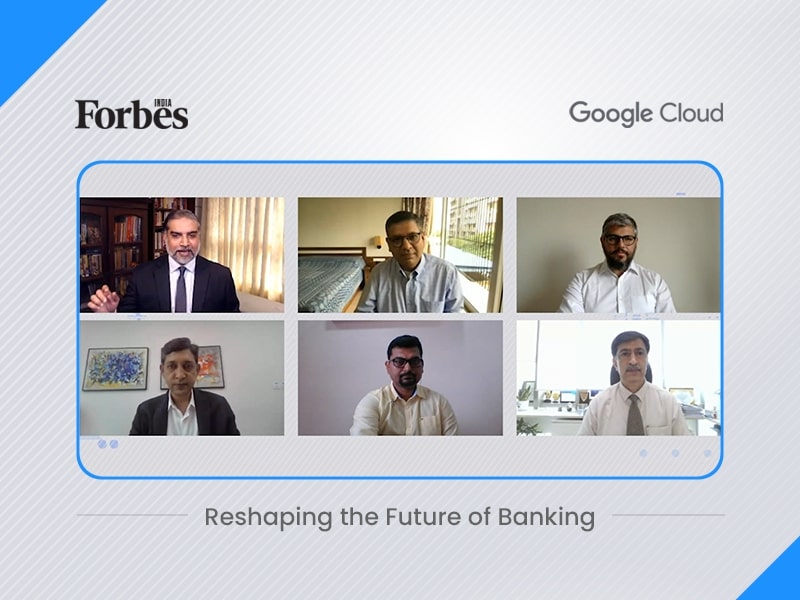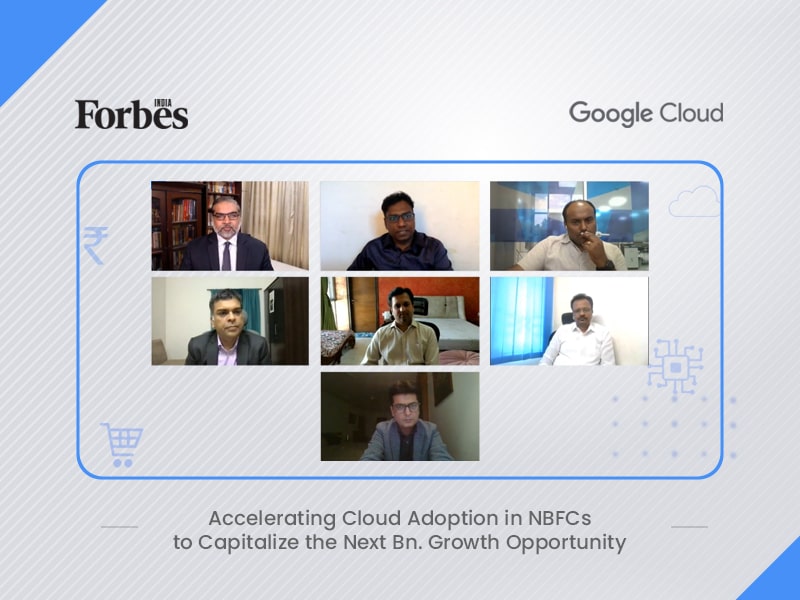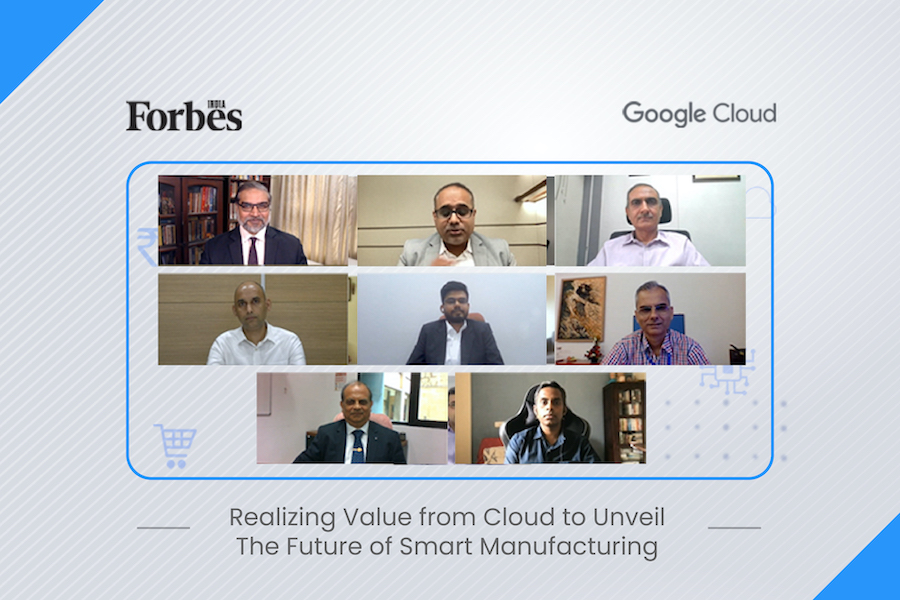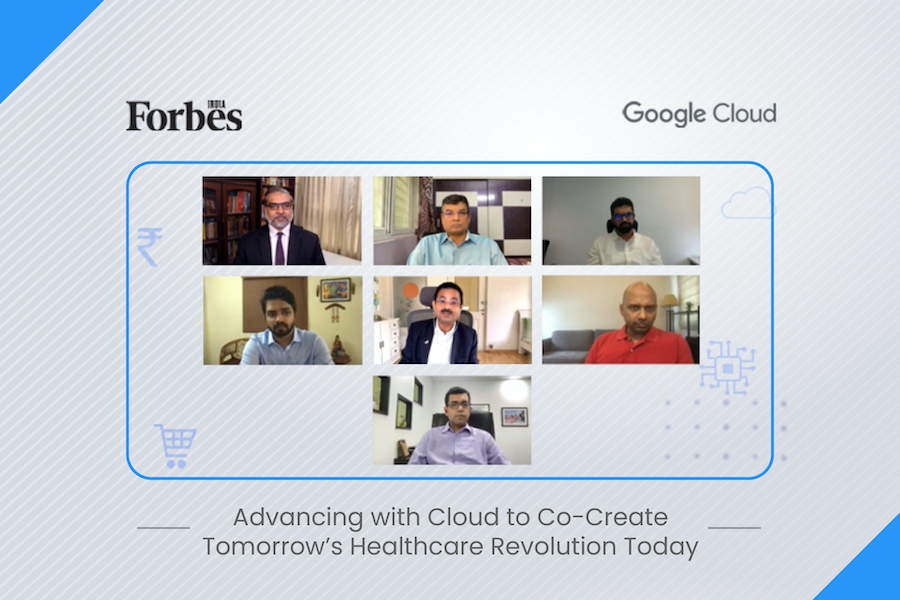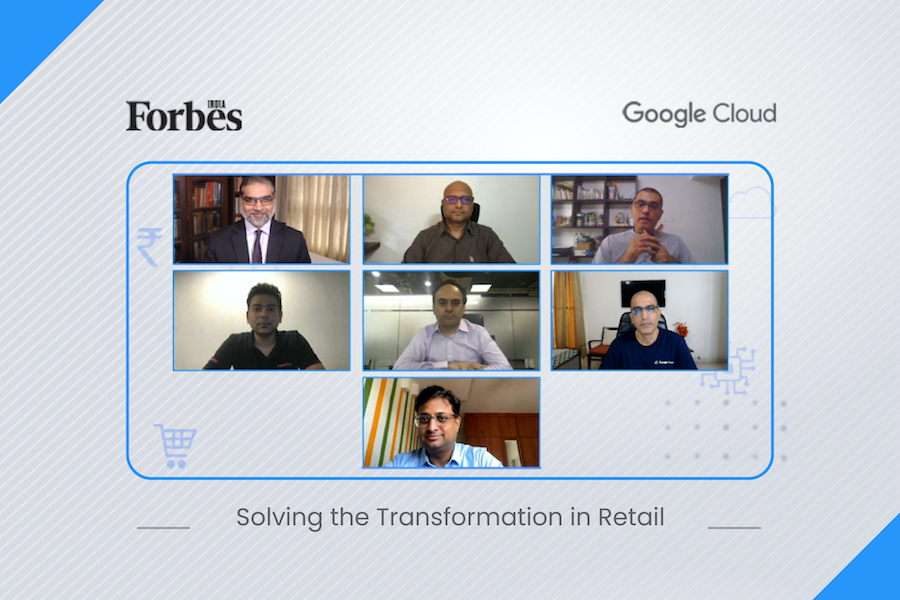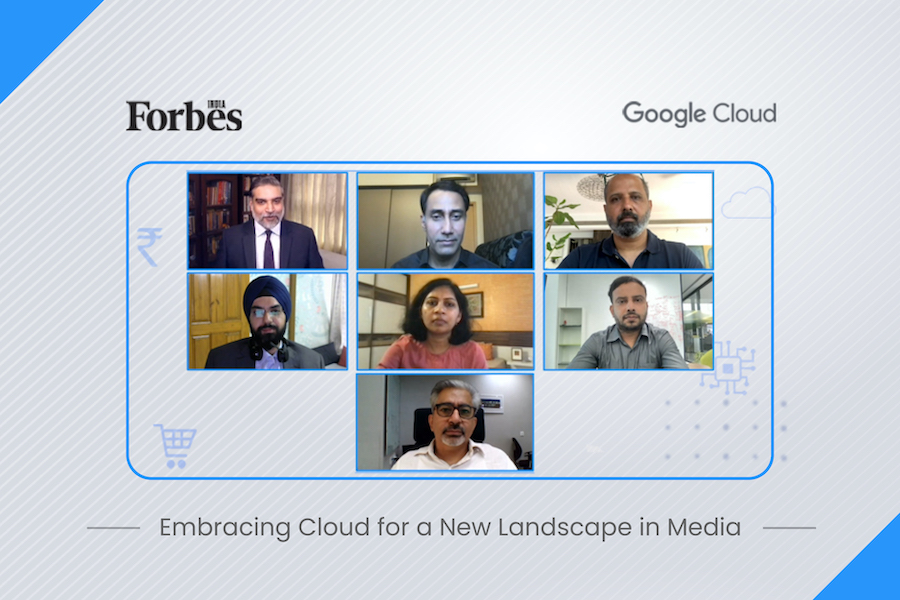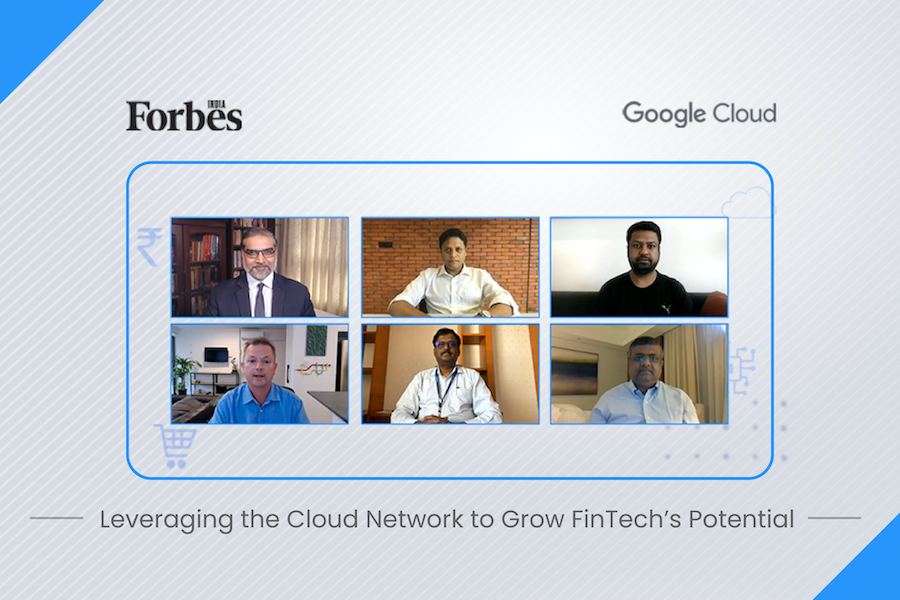THE NEXT WAVE OF CLOUD INNOVATION
Enterprise agility and the ability to innovate, adapt, and respond quickly to customer and market expectations is no longer a choice but the cornerstone of successful digital transformation. To be future-ready, meet the evolving needs of customers, defend against new competitors and unlock new growth opportunities; organisations have to fundamentally become digitally-driven.
Forbes India, in association with Google Cloud, brings to you a series of industry-focused roundtable discussions, The Next Wave of Cloud Innovation, featuring select leaders across industries to shed light on enterprises’ revamped business models, its technology prowess and the vision for the future. The discussions will focus on Banking, Media & Entertainment, FinTech, Retail & e-Commerce, NBFC, Healthcare and Manufacturing.
Roundtables
-
Banking
-
Media
-
Retail
-
FinTech
-
NBFC
-
Healthcare
-
Manufacturing
Banks are facing increased challenges, clearly identifying the need for digital transformation. Enterprise agility and the ability to innovate, adapt, and respond quickly to customer and market expectations is no longer a choice but the cornerstone of successful digital transformation. Banks have to fundamentally become digitally driven organizations if they are to meet the evolving needs of customers and defend against new competitors. Top leaders from the banking fraternity will share from their rich experience on how the pandemic has reshaped thinking around the cloud, what banks are doing to consolidate data effectively to service their needs, where can they unlock more value from APIs and how they approach security that is seamless, consistent, and granular.
Speakers

Sunil Soni
Chief GM - Customer Acquisition, Retail Liability & Corp. Comm. Division, Punjab National Bank
Dheemant Thacker
Head, Digital Banking, Ujjivan Small Finance Bank
Aninda Bhattacharyya
Head, Cloud COE & Enterprise Architecture, Axis Bank
Kiran Kesavarapu
Head of Customer Engineering, (Industry Solutions & Architecture), Google
Shyam Govindan
Partner – Consulting, Financial Services, Deloitte India
Gautam Srinivasan
Senior JournalistModerator
The DTC paradigm has affected the entire media value chain. Today, media companies must focus on serving/fitting new consumer behavior and expectations. This means making more content now than even before to attract customers that are global and fragmented. In order to keep those customers, media companies must use data-driven insights to provide personalized experiences -- specifically leveraging AI/ML technology to better understand their customer. Finally, companies must reach these global audiences with seamless global distribution. They must scale and distribute content effectively and efficiently. This shift to a direct-to-consumer paradigm, along with changing behaviors, is forcing media companies to reimagine their businesses.
Speakers

Sanjay Sindhwani
CEO, Indian Express Online Media Services
Vasuta Agarwal
MD - APAC, InMobi
Jesh Krishna Murthy
Founder & CEO, Anibrain
Karan Jaitapkar
Head, Digital, ABP Network
Sudharshan Aravamudan
Market Lead, Media & Entertainment, JAPAC, Google Cloud
Mandeep Kohli
MD & Partner, BCG
Gautam Srinivasan
Senior JournalistModerator
Changes in customer behaviour and uncertainties in the supply chain is resulting in more digitizing of the supply ecosystem. While 24% of customers prefer e-commerce, the remaining 76% prefer a more omni-channel shopping experience. Over the next 5 years, around 40% of warehouse operations are expected to be assisted by robotics and AI. These capabilities are intensifying pressure on margins with profitability compressed across the value chain. To deliver superior customer experiences and enhance business performance, retailers must invest in technology that allows them to operate with agility.The world of retail is rapidly shifting online, leading to an explosion of data across multiple business functions.
Speakers

Raghu Krishnananda
CTO, Myntra
Ramakant Sharma
Co-Founder & COO, Livspace
Sanjeev Barnwal
Co-Founder & CTO, Meesho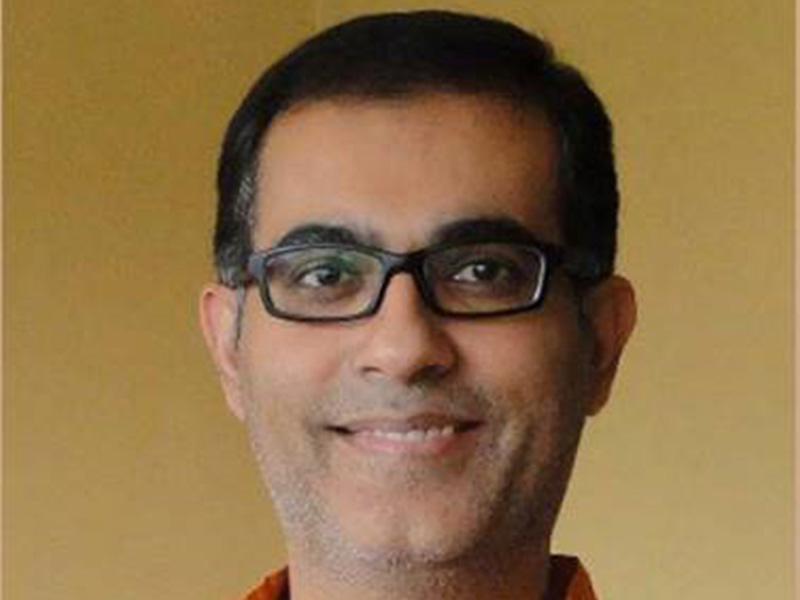
Manish Bhatia
President - Technology, Analytics and Capabilities, Lendingkart
Manish Gupta
MD & Client Group Lead – Products, Accenture in India
Sameer Dhingra
Director, Retail & CPG - JAPAC, Google Cloud
Gautam Srinivasan
Senior JournalistIndia has the highest FinTech adoption rate globally of 87% which is significantly higher than the global average rate of 64%. With the rise in digital lending coupled with the rise in demand for loans from small businesses and merchants after pandemic to re-settle their businesses, microlenders are expected to grow. Millennials constitute 47% of the country’s working population and primary target for FinTech as well. But there is a mounting pressure on FinTechs from security, customer expectations, competition from traditional banks and economic uncertainty standpoint. Google Cloud is uniquely positioned to help FinTechs in order to enhance customer experience, manage security, risk and compliance, reduce cost & grow revenue through new products and innovation.
Speakers

Ashish Singhal
Co-Founder & CEO, CoinSwitch Kuber
Murali Nair
President - Banking, Zeta
Nilesh Naker
EY India Technology Consulting Partner
Pushkar Mukewar
CEO & Co-founder, DRIP Capital
Ravi Kethana
Chief Platform Officer, CAMS
Stuart Houston
Director, Financial Services – APAC, Google Cloud
Gautam Srinivasan
Senior JournalistModerator
Insurers are taking steps to build digital capabilities around data and intelligence analytics to automate parts of the customer journey, but there is still a high amount of manual effort involved. The cultural shift to leverage cloud can help meet increasing demands and address key challenges such as increase in customer’s demand for bespoke experiences, need for product innovation, modernizing legacy infrastructure and competing with New competition from InsurTech entrants. Thus, financial lending companies like NBFCs and MFIs need to leverage time-saving technologies to optimise their operations.
Speakers

Suchit Mishra
CIO, Dhani Loan & Services Ltd
Saikumar Pokuri
Head - Digital transformation, Vistaar Financial Services
Dhanasekaran Sivaraj
CIO, Belstar Microfinance Ltd.
Sundar K
Co-Founder & CTO, DeepQuanty Artificial Intelligence Labs
Sachin Arora
Partner & Head of India Lighthouse, KPMG India
Rohit Verma
Principal Architect, Financial Services, Google Cloud
Gautam Srinivasan
Senior JournalistModerator
It is becoming increasingly clear that digital healthcare is the future. When it comes to providing high-quality medical care, clinicians can’t outsource human touch and personal intuition. The evolution of predictive analytics, however, is giving providers a helping hand to do their jobs even better. Deep access to pools of patient data can be leveraged to adjust care delivery models, improve patient outcomes and strengthen a hospital’s bottom line.
Speakers

Dr Rana Mehta
Partner & Leader, PwC India
Madhu Aravind
CTO, Apollo 24*7
Nikhil Khekadei
Head - Digital Transformation, MedikaBazaar
Anjani Kumar
CIO, Strides
Ramasubramani Ganesan
CTO, Portea
Vamsi Ramakrishnan
Customer Engineer & Infra Modernization Specialist, Google Cloud
Gautam Srinivasan
Senior JournalistModerator
The global race for digital innovation in manufacturing is picking up pace: Two-thirds of industrial companies worldwide say that digitizing the production value chain is a top priority. Manufacturers are rapidly adopting key enabling technologies. For example, by 2023, hybrid industrial cloud adoption is expected to more than double from 2018. Those leveraging technology to drive innovation are already seeing returns: Large industrial companies that successfully scale digital proof of concepts realize returns on digital investments of 20%+. Tech-enabled industrial companies transforming innovation early confer an advantage of 7% in EBIT, compared to 3% by average responders
Speakers

V Venkatachalam
CEO, Raychem RPG
Vineet Jaiswal
Dy. CEO, Centre Of Excellence (CoE) , AO, Digital, IT, Innovation, R&D & Quality, Vedanta Ltd
Jayant Gupta
CGM – Information Systems, HPCL
S K Suri
GM, IS Technology, BPCL
Sourajit Ghosh
GM – IT, NTPC
Pratik Goyal
Associate Partner, McKinsey India
Vivek Subramaniam
Principal Architect, Manufacturing, Google Cloud
Gautam Srinivasan
Senior JournalistModerator
Take the Google Cloud Assessment
Benchmark IT investments against industry peers and optimize costs for changing business needs.
Take the IT Cost Assessment

